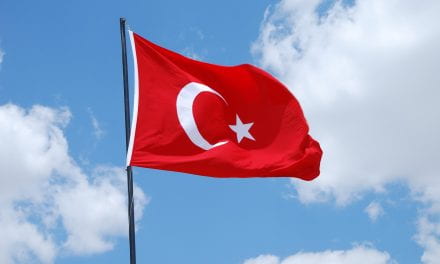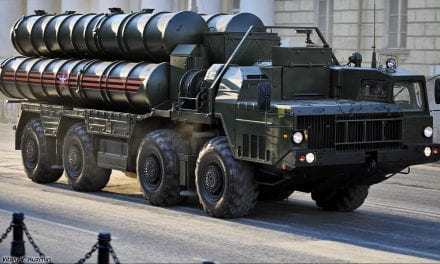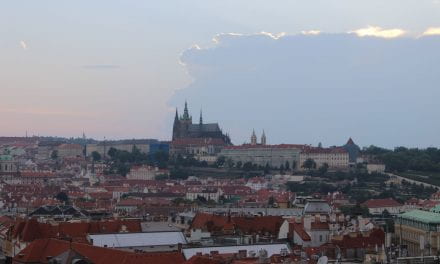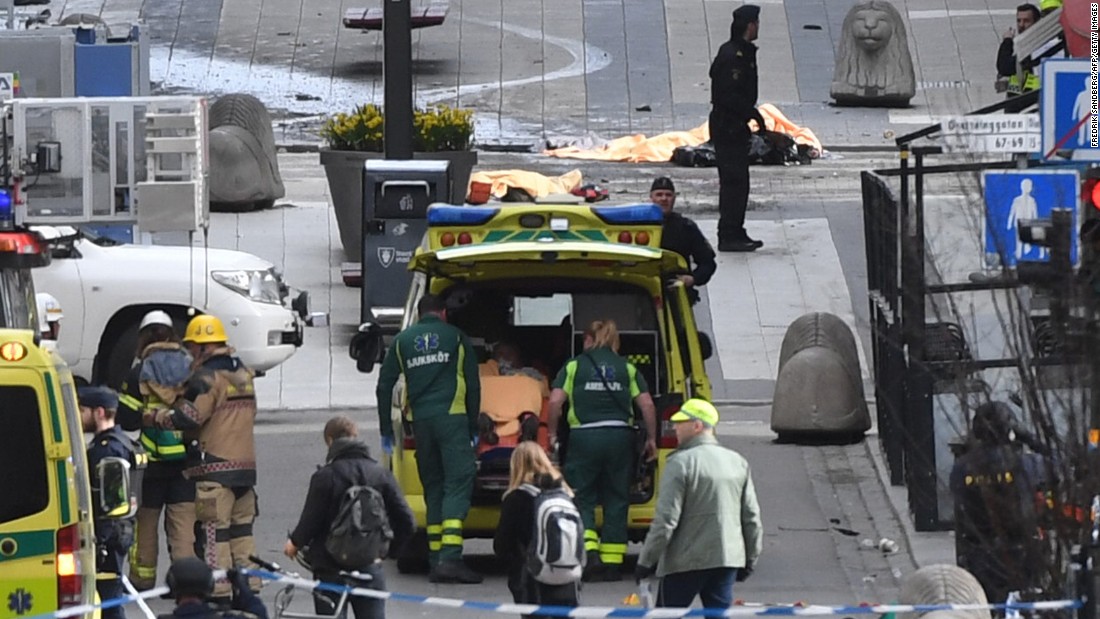On the windswept plains of Belarus, Europe’s last dictator finds himself between a rock and a hard place.
To the east, Belarusian President Aleksandr Grigoryevich Lukashenko has a powerful ally in Moscow. Belarus has always enjoyed (or endured, depending on who you ask) a particularly close relationship with Russia. Both states are ethnically East Slavic. Belarusian and Russian are nearly mutually intelligible languages, not to mention that 70 percent of the Belarusian population speaks Russian as a first language [1]. It was Russia that gave Belarusian nationalists the home rule they had sought since the early 19th century with the creation of the Belarusian SSR. Both states have complex histories of failed democracies, and both have taken an increasingly authoritarian tinge since the collapse of the Soviet empire that was supposed to signal a new era of open political and economic expression in the former Soviet bloc [2].
In addition to these similarities, Belarus is largely dependent on Russia economically. Belarus, not exactly the land of milk and honey, has few high-value exports of its own. As a result, over half of the Belarusian GDP hinges on the importation, refinement, and distribution of Russian crude oil. Russia provides the oil to the destitute Belarus at a price below market value, enabling Belarus to profit from selling the refined oil at market levels [3].
The political implications of Belarus’s economic dependence on the Russian energy sector are not lost on Lukashenko. In the past, Russia has proven itself willing to play a strong hand as the region’s predominant oil and natural gas supplier. In 2014, Russia stopped crucial oil and natural gas shipments to Ukraine in the dead of winter after Ukrainians protested against Moscow-backed Ukrainian president Viktor Yanukovych. When nearly freezing Ukrainian civilians into submission was not enough to quell unrest, Russian-backed separatist groups “secured” the Crimean peninsula and large sections of eastern Ukraine, claiming that ethnic Russians in the region wanted to join the Russian Federation to avoid persecution at the hands of the Ukrainian government [4].
Worryingly for Lukashenko, Belarus’s status as a favorite junior partner of Moscow has diminished some in the last few years. Russia has become increasingly insecure of its influence in what Russia calls its “near abroad”—those countries which previously constituted the Soviet Union and over which Russia has asserted a right to cultural and political control [5]. To understand Belarus’s current position in relation to Russia, it is important to understand its relationship with its neighbors to the West—Poland and the EU.
After Lukashenko’s election in 1994, Belarusian-Polish relations began a steady 20-year decline. The Lukashenko regime became increasingly violent and repressive, while Poland liberalized and became a vital Eastern European member of the EU. Given its proximity to Belarus and shared Slavic heritage, Poland took the lead in representing EU policy and ideals to Belarusian diplomats. Lukashenko responded to the first Polish efforts to include Belarus in European initiatives by engaging in voter suppression, censorship, and the disruption of public demonstrations by the military and the secret police (still known as the KGB in Belarus) [6].
Belarusian-Polish relations reached a low point in 2010, when Lukashenko again suppressed demonstrations against his reelection. From 2010-2014, little cooperation occurred between the EU and Belarus, and Polish policy seemed to deliberately target disaffected Belarusian professionals. Under the Karta Polaka (“Pole’s Card”), residents of territories formerly ruled by Poland—parts of Belarus, Ukraine, and the Baltics—are eligible for long-term visas to work or study in Poland with an accelerated path to citizenship. The only requirement for applicants to be considered was having at least one ancestor living in the territory that constituted Poland’s 1921-1939 borders. For Belarusians struggling under Lukashenko, the Polish system proved alluring. Whereas there were few economic opportunities in the stagnant Belarusian economy and limited political rights under Lukashenko, Poland was growing economically and offered the chance at becoming an EU citizen. Aside from attracting ethnic Belarusians who fit the Karta Polaka’s eligibility requirements, the opportunity for repatriation and increased economic and political opportunity targeted the estimated 250,000 ethnic Poles currently residing in Belarus [7].
Lukashenko’s regime viewed the Karta Polaka as a deliberate effort by Poland and the EU to attract Belarusian intellectuals and businesspeople to Europe at the expense of Belarus. In 2012, angered by measures such as the Karta Polaka and EU sanctions in response to the 2010 crackdowns, Belarus expelled Polish ambassador Leszek Szerepka and EU ambassador Maira Mora from Minsk [8]. Had Russia not intervened in Ukraine in 2014, relations may have declined further.
But Russia did intervene in Ukraine, and Lukashenko started to fear the implications of Russia’s increasingly belligerent foreign policy. Lukashenko realized that while he was nearly entirely dependent on Moscow for legitimacy and support, Moscow was significantly less reliant on him. Whether Lukashenko were in power in Belarus or not, Russia would still be the largest supplier of oil and natural gas to Eastern Europe; so, while it may be beneficial for Russia to have what was little more than a vassal on its western border, it was unlikely that Putin would see Lukashenko as anything more than a convenient partner.
Lukashenko recognized the vulnerability of his position. While stopping far short of turning away from Russia in favor of cultivating a closer relationship with Poland and Europe, he was willing to compromise on some of the West’s demands. In 2015, Lukashenko released political prisoners per EU requests (although he did nothing to address police repression). At the same time, Belarus sought to diminish its dependence on Russia economically. Belarusian Prime Minister Andrei Kobyakov outlined an export and support development program intended to expand Belarus’s participation in the regional economy and diversify the country’s export partners by 2020. So far, the program has been successful. From 2017-2018 alone, Belarus managed to reduce the percentage of its overall exports to Russia from 45% to 38.2%. Belarus has also succeeded in taking steps away from reliance on natural gas. Since the program’s start in 2016, the export of Belarusian services to EU consumers has increased by 30% [9].
Russia has not yet publicly reacted to Belarus’s overt attempts to distance itself economically from Moscow. Putin’s silence could be due in part to the fact that it is not yet clear how the sudden shift toward illiberal democracy in Poland will change Lukashenko’s relationship with the EU. The trend toward authoritarianism could embolden Lukashenko to return to unchecked autocracy, as Western political leaders have not taken strong stances against populist, ultranationalist parties in former liberal strongholds. Seeing the popularity of the Prawo i Sprawiedliwość (Law and Justice) party in Poland, the Alternative für Deutschland (Alternative for Germany) party in Germany, and the Hungarian Jobbik party, Lukashenko may abandon even the façade of political reform. An invigorated autocracy would certainly alienate the remaining liberal Western powers and leave Russia as Lukashenko’s only realistic potential ally.
There is also the possibility that Lukashenko only ever plays at reform, never truly straying from an autocratic, Russia-backed baseline. Lukashenko has still not, for example, readmitted the US ambassador, whom he expelled in 2007 during a series of post-election crackdowns. He has not permitted the Organization for Security and Cooperation in Europe (OSCE) to operate a field office in Belarus since 2002. Moreover, previous prisoner releases and brief moments of reform have never yielded long-term results; in fact, opposition leaders like Vladimir Neklyayev remarked as early as 2011 that occasional prisoner releasescoupled with faux reform was Lukashenko’s preferrred method of easing tensions with the West [10]. After past crackdowns, Lukashenko has intentionally held illegally detained prisoners to use as bargaining chips in sanctions negotiations with Western powers like the US.
Additionally, Lukashenko’s domestic actions do not hint at the possibility for reform. Regardless of how Lukashenko treats political opponents, the fact that he brings his adolescent son to serious affairs of state and presents him as the future leader of Belarus does not suggest an imminent dawning of Belarusian democracy. That Lukashenko continues to invest large quantities of money in propaganda projects of dubious value to the Belarusian people (such as the 2 million USD allocated to the production of a bizarre movie honoring Soviet fighter pilots in WW2 starring French actor Gérard Depardieu, who himself has a colorful past) is not telling of a healthy system of checks and balances [11].
As liberal democracy faces stiff challenges throughout Europe, the West’s dealings with Belarus could provide a valuable blueprint in dealing with former Soviet states that could potentially be lured into Putin’s authoritarian orbit. Obviously, Lukashenko is not a leader who is going to bring Belarus to democracy; however, the recent economic initiatives suggest a real desire to become less dependent on Russia. If liberal Western powers hope to combat the rising influence of autocracy in Eastern Europe, they will have to position themselves to accept a post-Lukashenko Belarus into the European economic community.
References
[1] CIA World Factbook. 2018. “Belarus.” CIA. https://www.cia.gov/Library/publications/the-world-factbook/geos/bo.html
[2] Rumer, Eugene and Bogdan Belei. 31 May 2017. “Belarus: With Friends Like These…” Carnegie Endowment for International Peace. http://carnegieendowment.org/2017/05/31/belarus-with-friends-like-these.-.–pub-70135
[3] Ibid.
[4] Kurkov, Andrey. 21 November 2014. “Ukraine’s Revolution: Making Sense of a Year of Chaos.” BBC. http://www.bbc.com/news/world-europe-30131108
[5] Rumer, Eugene and Bogdan Belei.
[6] Polish Ministry of Foreign Affairs. 2018. “Belarus.” Polish Ministry of Foreign Affairs. http://www.msz.gov.pl/en/foreign_policy/eastern_policy/belarus;jsessionid=4D23563D9E4AEE67B13B57CA8F43143A.cmsap1p
[7] Smok, Vadzim. 23 February 2016. “Poland Lures ‘the Best Migrants in the World’ from Belarus.” Belarus Digest. https://belarusdigest.com/story/poland-lures-the-best-migrants-in-the-world-from-belarus/
[8] Gubarevich, Igar. 16 November 2016. “Three Thorns in the Flesh of Belarus-Poland Relations.” Belarus Digest. https://belarusdigest.com/story/three-thorns-in-the-flesh-of-belarus-poland-relations/
[9] Belarusian Ministry of Foreign Affairs. 2018. “Foreign Trade of Belarus in 2017.” Belarusian Ministry of Foreign Affairs. http://mfa.gov.by/en/foreign_trade/
[10] Kirchik, James. 14 September 2011. “In Belarus, Alexander Lukashenko is Playing at Reform.” The Washington Post. https://www.washingtonpost.com/opinions/in-belarus-alexander-lukashenko-is-playing-at-reform/2011/09/13/gIQANwaxSK_story.html?noredirect=on&utm_term=.f285282a8599
[11] Luhn, Alec. 29 September 2015. “Belarus President Bring 11-Year-Old Son to UN.” The Guardian. https://www.theguardian.com/world/2015/sep/29/belarus-president-alexander-lukashenko-kolya
*Disclaimer: The content contained in the following material is the sole ownership of the author and does not reflect the views of the Towson University Journal of International Affairs nor Towson University in any respect whatsoever.







